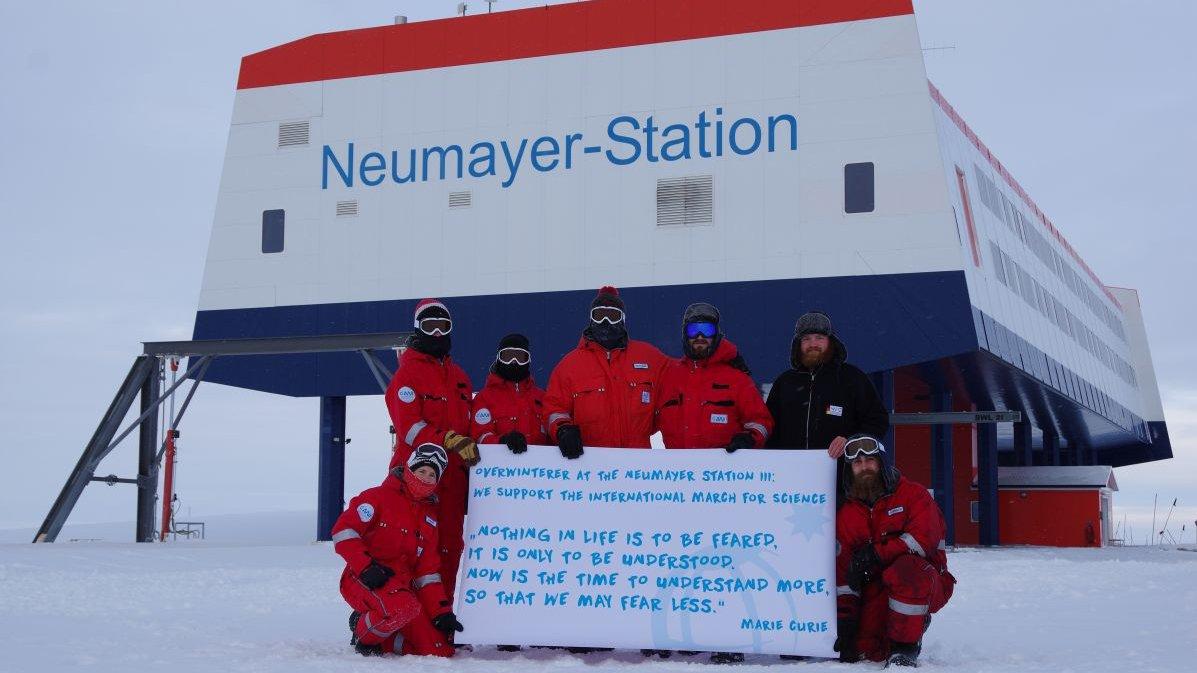Scientists hate Donald Trump so much they marched against him in the Antarctic ice sheet
Antarctica might have the population most hostile to the President in the world

Your support helps us to tell the story
From reproductive rights to climate change to Big Tech, The Independent is on the ground when the story is developing. Whether it's investigating the financials of Elon Musk's pro-Trump PAC or producing our latest documentary, 'The A Word', which shines a light on the American women fighting for reproductive rights, we know how important it is to parse out the facts from the messaging.
At such a critical moment in US history, we need reporters on the ground. Your donation allows us to keep sending journalists to speak to both sides of the story.
The Independent is trusted by Americans across the entire political spectrum. And unlike many other quality news outlets, we choose not to lock Americans out of our reporting and analysis with paywalls. We believe quality journalism should be available to everyone, paid for by those who can afford it.
Your support makes all the difference.Scientists across the world have demonstrated against Donald Trump. Including in its most inhospitable and deadly climates. Researchers at the Neumayer-Station in Antarctica lent their support to the March for Science demonstrations, which call on governments across the world – but particularly Donald Trump's – to embrace evidence-based policy and facts like climate change.
The scientists stood outside in the dangerous Antarctic tundra to lend their support to the huge protests taking place across the globe.They carried a board that made clear the researchers supported the march and carried a quotation from Marie Curie.
“Nothing in life is to be feared, it is only to be understood,” it read. “Now is the time to understand more, so that we may fear less.” Among other work, the German research station studies meteorology and atmospheric chemistry, tracking the vast changes that global warming has brought to the Antarctic.
They were just one group of thousands that marched across the world, including in Washington DC, in the March for Science. The organisers of the march said that they weren't partisan. But many of the signs focused on Mr Trump and the organisers said that the decision to cut federal funding for climate research and other anti-scientific policies were among those being protested.
Mr Trump posted a tweet that appeared to be a response to those protests, arguing that he would work to preserve the environment so long as it didn't hurt jobs.
“My Administration is committed to keeping our air and water clean, to preserving our forests, lakes, and open spaces, and to protecting endangered species,” he said in a statement released to mark Earth Day, on which the protests took place. He said that “rigorous science” is central to his administration.
The Antarctic’s response to Donald Trump has been hostile, with women marching against him there at the very beginning of his presidency.
Join our commenting forum
Join thought-provoking conversations, follow other Independent readers and see their replies
Comments